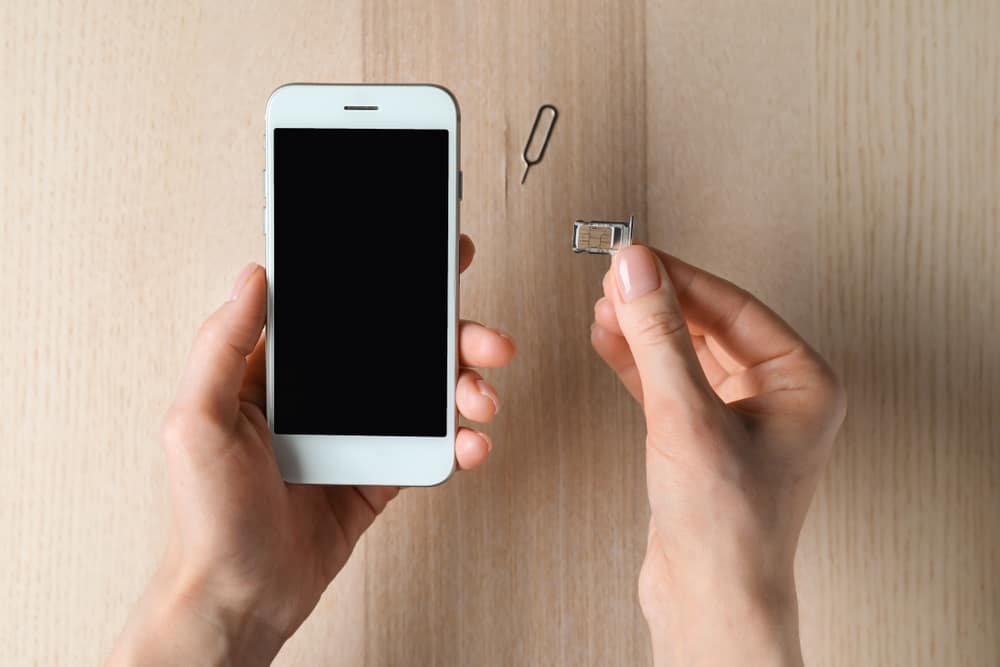
The SIM card links your phone to your service provider. It serves to establish a connection to a cellular network.
The quality of a SIM card’s manufacturing process determines its lifespan. Although some people tend to keep the same card for up to eight years, specific problems can arise with some other SIM cards, which cause them to become faulty.
In this article, we delve into the details of understanding how a SIM card works and explain how regularly you need to replace your SIM.
Why Do You Need to Replace Your SIM Cards Often?
Contrary to what you might think, a SIM card wouldn’t last for long times. Many people have used their SIMs for extended periods because “nothing’s wrong with it.” However, this is hardly an objective statement because the owners of such SIMs might have adapted to their poor connectivity. The SIM’s functionality declines after a few years of usage, and then you need to change it.
What Is the Average Lifespan of a SIM Card?
The life of a SIM card isn’t indefinite, and these SIMS begin to fail after some time. It would help if you changed your SIMs as regularly as possible, maybe like 5 to 7 years, to minimize network issues caused by using an old SIM. There are a few exceptions to the longevity of a SIM card, like production faults that aren’t immediately obvious in specific conditions.
High humidity, intense magnetic radiation, and corrosion are examples of situations limiting the lifespan. The most significant risk to a SIM’s lifespan through deactivation is the absence of activities linked with the SIM card, hence reducing the lifespan.
After two years of inactivity, most credit card companies will disable the card. Depending on your service provider and the rules that abide in your environment, reloading the SIM card with prepaid credit may be sufficient to restore functionality.
How Often Do You Need to Change Your SIM
In most cases, no particular service terms dictate how often you should update or replace your SIM card. Nevertheless, there are different cases in which you need another SIM card, as explained below.
You Got It Lost
Losing a SIM card is one of the most common reasons for getting a new SIM card replacement. If you have misplaced your SIM card or your phone with the SIM, you need to contact your network carrier and request a replacement SIM card. The fee here is solely for the SIM card; however, swapping out the SIM card is provided for free unless you can do it yourself.
The solution to getting a new or swapped SIM might differ in your environment. Follow the laid out procedure set by the government or network service providers.
The SIM Is Damaged
The second reason to get a new SIM card is that your old one is damaged and couldn’t be repaired, making it no longer functional. As the SIM card doesn’t see or receive any network connections or coverage, and the phone displays or shows no service, the SIM card is no use.
It’s best to get a new SIM card if you’re confident the issue is with the SIM card and not the phone’s SIM slot.
Summary
Changing your SIM card might be an obscure topic. However, when you have used your SIM for too long, it may develop issues that impact connectivity. There’s no specific time to change your SIM, but you can do that between 5 to 7 years to minimize the network issues caused by using an old SIM.
Frequently Asked Questions
Suppose the SIM card detected no network connections or coverage, the phone displays or indicates no service. Then the problems may be with the phone’s SIM slot or the SIM card itself. If you’re sure the problem is with the phone’s SIM card and not the phone’s slot, you should get a new SIM card.
Several things damaged SIM cards. For instance, due to regular smartphone use, tiny dust particles might enter the gadget when it comes to areas that can be opened, such as the SIM card tray. Dust and filth in lint can cause problems when they contact the SIM slot or the SIM card itself. If your SIM card has a scratch, you should get a new SIM card from your service provider.








